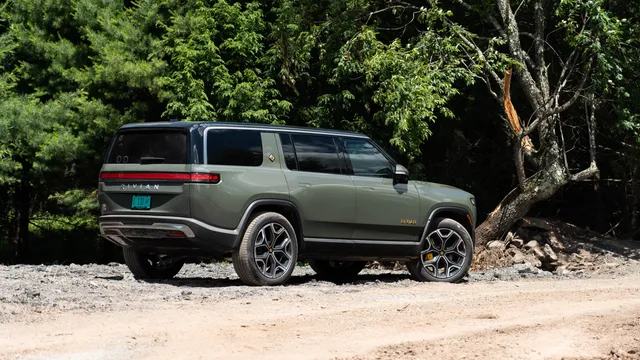Buying a car is one of the most significant financial decisions you’ll make in your life, whether it’s your first car or your fifth. The process of buying a car can be exciting, overwhelming, and stressful all at once. With so many options, dealerships, financing options, and varying prices, the key to making the right decision lies in proper research and preparation. In this article, we’ll walk you through everything you need to know before stepping foot in a dealership or clicking that ‘buy’ button online. From understanding your budget to deciding between new and used cars, here’s your ultimate guide to buying a car.
1. Assess Your Budget: What Can You Afford?
Before you even start looking at cars, it’s crucial to establish a budget. You need to know exactly how much you can afford to spend without straining your finances. Keep in mind that the cost of owning a car extends beyond the purchase price.
Factors to Consider:
- Down Payment: Most car buyers will need to make a down payment. This can be anywhere from 10% to 20% of the car’s price. The larger your down payment, the less you’ll need to finance and the lower your monthly payments will be.
- Monthly Payments: Determine how much you’re comfortable paying each month. A general rule of thumb is that your monthly car payment should not exceed 15% of your monthly take-home pay.
- Insurance Costs: Car insurance varies widely depending on the model, your driving record, and other factors. It’s essential to factor in insurance costs when determining your overall budget.
- Maintenance and Fuel Costs: Don’t forget to account for fuel and maintenance. A car with good fuel efficiency may save you money in the long run. Additionally, some cars, especially luxury or performance models, can come with higher maintenance costs.
2. New vs. Used Cars: Which Is Right for You?
When buying a car, one of the first decisions you’ll need to make is whether to buy new or used. Both options come with their advantages and disadvantages, so it’s important to carefully consider your preferences, needs, and budget.
New Cars:
- Advantages:
- Latest Technology and Features: New cars come equipped with the latest tech and safety features.
- Full Warranty: Most new cars come with a manufacturer’s warranty, giving you peace of mind if anything goes wrong.
- No Wear and Tear: With a new car, you’re the first owner, meaning no past accidents, repairs, or maintenance issues.
- Disadvantages:
- Depreciation: New cars lose value quickly, with the average car losing around 20% of its value within the first year.
- Higher Price: New cars are typically more expensive than used cars, both in terms of purchase price and insurance.
Used Cars:
- Advantages:
- Lower Cost: Used cars are more affordable than new cars and typically come with lower insurance premiums.
- Depreciation Benefits: Since used cars have already experienced their biggest depreciation, they tend to lose value more slowly.
- Disadvantages:
- Higher Maintenance Risk: Used cars may require more frequent maintenance, and there’s always the risk of hidden issues.
- Limited Warranty: Used cars might not come with a warranty, depending on the seller and the age of the vehicle.
Ultimately, your decision will depend on your budget, how long you plan to keep the car, and your preference for reliability versus cost savings.
3. Do Your Research: Know What You Want
Once you’ve established your budget and decided on the type of car you’re looking for, it’s time to do some research. In today’s digital age, there’s an abundance of online resources to help you narrow down your options.
Factors to Consider:
- Car Type: Do you need a compact car for commuting, an SUV for your family, or a truck for hauling? Make sure to choose a car that suits your lifestyle and driving habits.
- Fuel Efficiency: If you drive long distances or commute daily, fuel efficiency can be a major factor in your decision. Check out the miles per gallon (MPG) ratings for the cars you’re interested in.
- Safety Ratings: Websites like the National Highway Traffic Safety Administration (NHTSA) and the Insurance Institute for Highway Safety (IIHS) provide detailed safety ratings and crash test results for most cars.
- Reliability: Some cars are known for their longevity and reliability, while others may be prone to frequent breakdowns. Brands like Toyota, Honda, and Subaru are generally known for their durability.
- Resale Value: If you plan on selling or trading in your car in a few years, consider the model’s resale value. Some cars hold their value better than others.
4. Financing Your Car: Know Your Options
Once you’ve chosen a car, you’ll likely need to finance the purchase. There are several options to consider, each with its own pros and cons.
Financing Options:
- Dealership Financing: Many dealerships offer financing options, sometimes with special promotions like 0% APR for qualified buyers. While this might seem like a good deal, be sure to read the fine print and compare the terms to other offers.
- Bank or Credit Union Loans: If you have a good credit score, banks and credit unions may offer competitive interest rates for auto loans. It’s often a good idea to get pre-approved for a loan before visiting a dealership, as this gives you a better idea of what you can afford.
- Leasing: Leasing allows you to drive a new car for a few years with lower monthly payments. However, you don’t own the car, and at the end of the lease term, you’ll need to return it or buy it outright.
- Cash Purchase: If you can afford to pay for your car in full, buying with cash eliminates the need for financing. However, this may not be an option for everyone.
Tips for Financing:
- Check Your Credit Score: Your credit score will affect the interest rate you’re offered. Make sure to check your score and work to improve it if necessary before applying for a loan.
- Shop Around for the Best Rates: Don’t settle for the first financing option you’re offered. Shop around with banks, credit unions, and online lenders to find the best rates.
- Understand the Terms: Ensure you fully understand the loan’s terms, including the interest rate, loan duration, and any fees or penalties.
5. Test Drive and Inspect the Car
Before finalizing your decision, always take the car for a test drive. This is your chance to get a feel for how it handles on the road, how comfortable it is, and whether it meets your expectations.
What to Check During a Test Drive:
- Comfort: Are the seats comfortable? Is there enough legroom and headroom?
- Visibility: Check the visibility from the driver’s seat, including blind spots.
- Performance: How does the car accelerate, brake, and handle turns?
- Technology: Test the infotainment system, Bluetooth connectivity, and other features.
If you’re buying a used car, it’s also a good idea to have it inspected by a trusted mechanic before committing to the purchase. This can help you identify any hidden issues that may not be apparent during a test drive.
6. Negotiate the Price
Don’t be afraid to negotiate the price of the car. Many dealerships are willing to work with you on price, especially if you’ve done your research and know the fair market value of the vehicle. Here are some tips for negotiating:
- Be Prepared to Walk Away: If the price isn’t right, don’t be afraid to walk away. Often, this can prompt the dealer to make a better offer.
- Know the Market Value: Use online tools like Kelley Blue Book, Edmunds, or Autotrader to check the fair market value of the car.
- Look for Incentives: Many manufacturers offer cash rebates, special financing, or other promotions. Ask the dealer about any current incentives.
7. Finalize the Deal: Close the Deal with Confidence
Once you’ve agreed on the price, it’s time to finalize the deal. Be sure to thoroughly review the contract before signing, paying close attention to the terms of the loan (if applicable), any additional fees, and the return policy.
Final Checks:
- Read the Contract Carefully: Ensure all the terms you agreed upon are written in the contract.
- Don’t Forget Fees: Be mindful of additional costs like sales tax, title fees, registration, and documentation fees, which can add up quickly.
- Get Everything in Writing: If the dealer promises any repairs or upgrades, make sure they are documented in writing.
Conclusion
Buying a car is a big decision, and doing your homework is crucial to ensuring you get the best deal possible. By assessing your budget, deciding between new or used, researching the car’s features, understanding financing options, and negotiating the price, you can confidently navigate the car-buying process. Take your time, weigh your options carefully, and don’t be afraid to walk away from a deal that doesn’t feel right.

